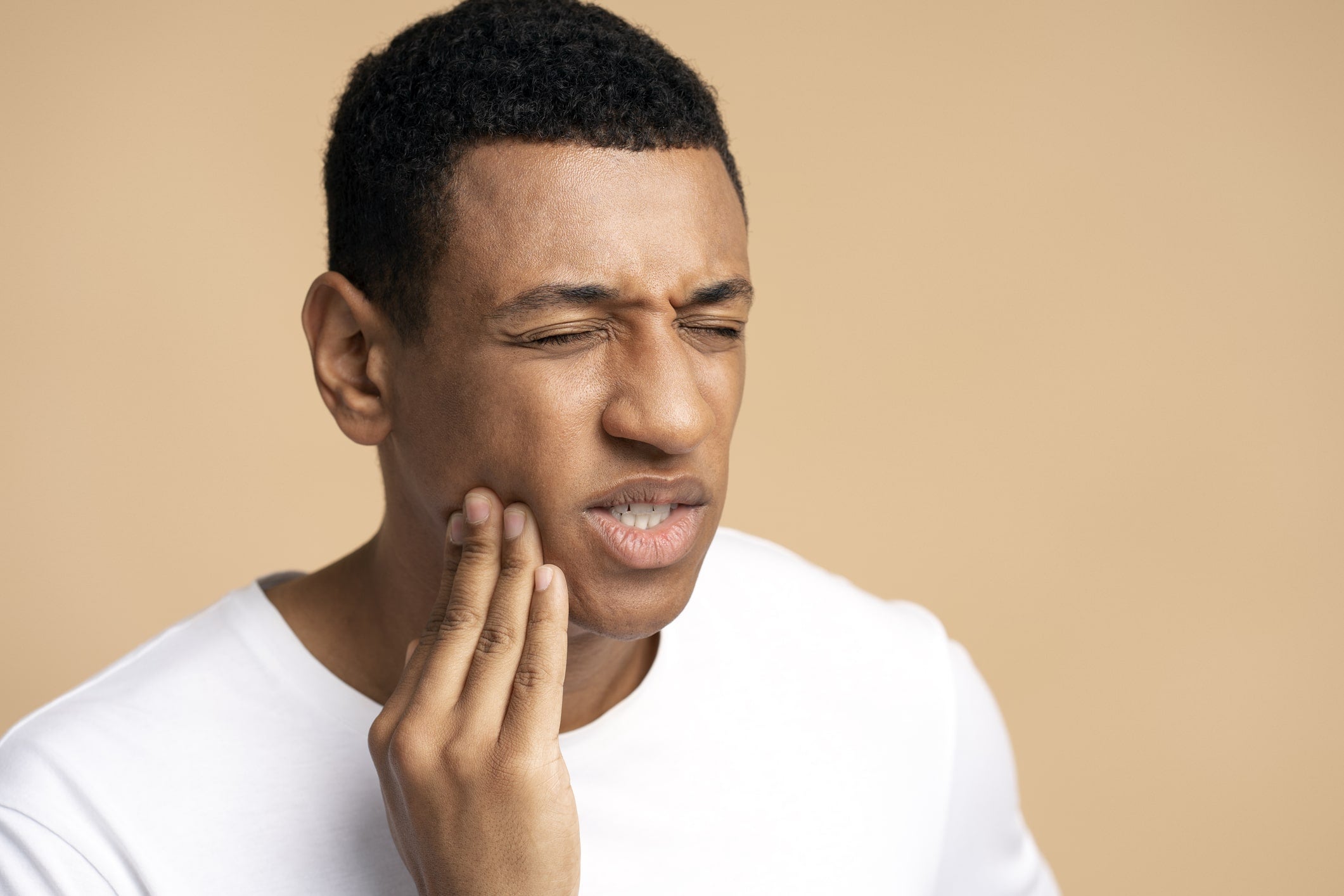-
What Are All-on-4 Dental Implants?

All-on-4 dental implants are a groundbreaking option for those who have lost all or most of their teeth. This dental procedure offers a stable and long-lasting alternative to traditional dentures, providing both functionality and aesthetics. Understanding what All-on-4 dental implants are and how they work can help those considering this option make an informed decision.
Continue reading “What Are All-on-4 Dental Implants?”
-
The Connection Between Snoring and Your Dental Health

Snoring affects millions of people worldwide. While it is often regarded as a minor inconvenience, snoring can sometimes signal underlying health problems, including those related to dental health. Understanding the connection between snoring and dental health can help you deal with the root causes and improve your overall well-being.
Continue reading “The Connection Between Snoring and Your Dental Health”
-
How Improving Your Dental Health Can Make You Happier

Maintaining good dental health is often seen as a fundamental aspect of overall well-being. While the benefits of brushing and flossing are well-known in terms of preventing cavities and gum disease, the positive impact of good oral hygiene extends far beyond just a healthy smile. In fact, improving your dental health can cause you to feel happier and improve your quality of life.
Continue reading “How Improving Your Dental Health Can Make You Happier”
-
Social Media and the Rise of Veneers: A Perfect Smile Revolution

In the age of video calls and selfies, where every smile is under the scrutiny of high-definition cameras and social media’s ever-watchful eye, the quest for the perfect smile has taken on new significance. Among the most popular cosmetic procedures to achieve that flawless look are dental veneers. These custom-made shells cover the front of the teeth, improving their appearance by altering the color, shape, size, or length. The surge in the popularity of veneers coincides with the rise of social media and the influence of digital culture on personal aesthetics.
Continue reading “Social Media and the Rise of Veneers: A Perfect Smile Revolution”
-
Preventing Gum Disease in Children: Tips for Parents on Promoting Healthy Gums
Promoting Healthy Little Mouths

As parents, we strive to help our children grow up healthy and strong in every possible way. Good dental hygiene is a big part of that, not just to prevent cavities but also to reduce the risk of gum disease. It’s never too early to start promoting healthy teeth and gums. Continue reading “Preventing Gum Disease in Children: Tips for Parents on Promoting Healthy Gums”
-
Bad Breath: Causes and Remedies
The Problem of Bad Breath

Medically known as halitosis, bad breath is a problem that can happen to anyone. It is an embarrassing issue, and can cause anxiety, especially when it’s not easily remedied with gum, mints, or mouthwash. In many cases, halitosis can be remedied by keeping the mouth scrupulously clean. In other cases, it’s not that simple. Here, we’ll discuss some of the causes of bad breath, as well as some helpful remedies. Continue reading “Bad Breath: Causes and Remedies”
-
Why Does My Jaw Hurt: Tooth Infection or TMJ
Jaw Pain Can Be Overwhelming

Jaw pain is a common issue, but that doesn’t make it any less intense when you are experiencing it. It can be a mild ache, stiffness, or pain in the jawbone, or severe pain radiating down one side of your face and up the other, but however it feels, jaw pain is something that can’t be ignored. In some cases, it’s easy to pinpoint the cause of jaw pain, as when there has been an injury. However, there are many factors that can cause this pain, including tooth infections and temporomandibular joint pain. How can you tell the difference and get the relief you need? Continue reading “Why Does My Jaw Hurt: Tooth Infection or TMJ”
-
Drinks that Could be Ruining your Teeth
The Effects of Drinks on Your Teeth

We all know that the food we eat affects our teeth, but often, we forget to think about the impact of what we drink. Still, it might cross your mind when you drink something that makes your teeth feel filmy or grimy. How much do your beverages affect your teeth? The things you drink definitely impact your dental health, but which of your drinks could be ruining your teeth? Continue reading “Drinks that Could be Ruining your Teeth”
-
How Long Do Dental Sealants Last?
Dental sealants are a preventive treatment commonly used in dentistry to protect teeth from decay. These thin, protective coatings are applied to the chewing surfaces of the back teeth, where cavities most often occur. By creating a barrier against food particles and bacteria, dental sealants can help maintain oral health. Understanding how long dental sealants last is important for understanding how they can provide effective protection over time. Today we will explore the typical lifespan of dental sealants, the factors that influence their durability, and how to maintain them for optimal performance. Continue reading “How Long Do Dental Sealants Last?”
-
Do Cavities Have a Distinct Smell?
Imagine sitting in a dentist’s chair, anxiously waiting for the results of your routine check-up. The dentist peers into your mouth and suddenly comments on a peculiar smell. Could it be that cavities have a distinct odor? This scenario might sound unusual, but it touches on an intriguing question that combines dental health and the science of smell. Today, we investigate whether cavities have a smell. By exploring the science behind odors, examining current research, and considering the practical implications, we will discover whether our noses might aid in the early detection and treatment of dental cavities. Continue reading “Do Cavities Have a Distinct Smell?”
RECENT POSTS
categories
- Uncategorized
- Cosmetic Dentistry
- Veneers
- Healthier Teeth
- Teeth Whitening
- Dental Health
- Video
- Dental Emergencies
- Invisalign
- Dental Implants
- Root Canal
- Sedation Dentistry
- Infographic
- Dental Crowns and Bridges
- Dental Anxiety
- Gum Disease
- COVID-19
- Bad Breath
- New York Dentist
- Cut out sugar
- General Dentistry
- Oral Health
- Oral Cancer
- Dry Mouth
- Gum Health
- Toothache
- Dental Sealants
- Cavities



